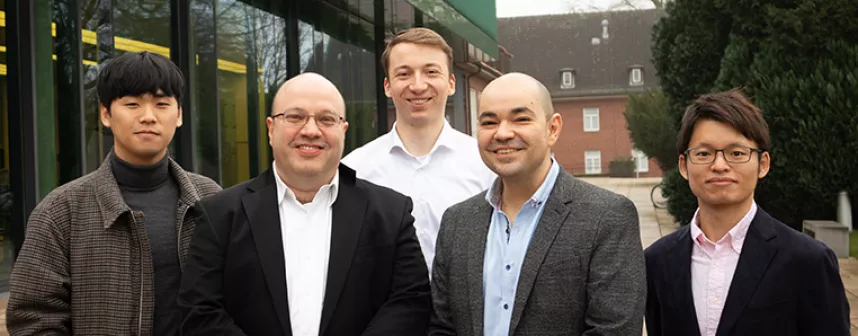Future 6G Technology: Jacobs University Bremen and Continental Intensify Cooperation
March 22, 2022
The first 5G networks in Germany have only just gone live, and the scientific community, as well as industry, are already looking at the sixth generation of mobile communications. In a joint project, the technology company Continental and Jacobs University are researching future applications of 6G for automotive connectivity and autonomous driving. The project will initially run for three years and create three new positions for PhD students at Jacobs University.
"We are intensifying our ongoing, very successful collaboration with Jacobs University", said Karsten Michels, Head of Research & Advanced Engineering at Continental. An important research goal is achieving safety in advanced automotive applications and protect vulnerable road users. The company has a long tradition of developing safety technologies. "We are pursuing Vision Zero," explained David González G., Senior Research Engineer and project manager at Continental, "Our goal is to ensure no more traffic fatalities, no more injuries, no more accidents. We can achieve that."
On the way to fulfilling this vision, 6G is an important tool. The wireless network, which is expected to be launched in 2030, will transmit data up to 1,000 times faster than the predecessor technology 5G. Latency, the speed at which networked vehicles process wireless signals, will also improve significantly. This is of key importance for autonomous driving in particular. To avoid accidents, it is necessary to determine the exact position of vehicles and their distances from other vehicles, people, or obstacles in real time.
"Cars without connectivity are like computers without the internet", commented Giuseppe Thadeu Freitas de Abreu, Professor of Electrical Engineering and principal investigator on the Jacobs University side, on the importance of wireless communication. "With 6G, the technological revolution is still ahead of us." With 5G, he said, communications for the first time broke away from cell phones and enabled the “Internet of Things,” or the exchange of information from and between machines. With 6G, the network will not only be faster, more targeted and more energy-efficient. New sources of information are also being added, such as sensors and radar, which can be integrated into the network and evaluated with the help of artificial intelligence.
Professor Abreu is particularly pleased with the focus on the hands-on approach of the cooperation with Continental: "We are working together on innovations that could one day make everyday life easier for many people." The first joint project had already been very fruitful and innovative, and Abreu is confident that the current project will have similar success.
Further information:
The Department of Computer Science and Electrical Engineering invites interested candidates to apply for the position of Research Associate (PhD Candidate) mmWave/sub-THz Joint Wireless Communications and Imaging: https://bit.ly/3raLnh7
Questions answered by:
Dr. Giuseppe Thadeu Freitas de Abreu | Professor of Electrical Engineering
Email: g.abreu [at] jacobs-university.de | Tel: +49 421 200-3271
